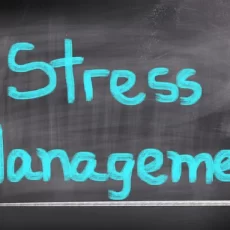In today’s parlance, it is the most widely used term, globally, across continents, across nations, across ages, across races, and genders. Stress is the widest spread phenomenon today which is impacting the world’s population like no other. Everybody is stressed…
So, what is stress?
Stress is our body’s response to pressure. Many different situations or life events can cause stress. It is often triggered when we experience something new, or unexpected, that threatens our sense of self, or when we feel we have little control over a situation. We all deal with stress differently, sometimes we leave it to let it be…
…But it is important to deal with stress, sometimes by yourself, sometimes with the help of family and friends, and sometimes with professional help. You need to figure out what works best for you and act accordingly. Stress is a silent killer; it is not a kind of disease that can be diagnosed easily. Here you are the patient, you are the curer.
Stress is part of modern-day life of all humans, and it can help motivate you to get things done or undone, as the case may be. Even high stress from serious illness, job loss, a death in the family, or a painful life event can be a natural part of life. You may feel down or anxious, and that’s normal too for a while.
In such a scenario, when you know the reason for your stress, you need to talk to a professional therapist, psychiatrist, or doctor as a first measure. In case you feel down or anxious for more than several weeks or if it starts to interfere with your home or work life. Therapy, medication, and other strategies can help.
Stress can be managed all by yourself as popping pills may not help as in the case of other ailments. You can manage stress in stages so it doesn’t overtake you and do more damage. These tips may help you keep stress at bay like keeping a positive attitude, accepting that there are events that you cannot control, being assertive instead of aggressive, and asserting your feelings, opinions, or beliefs instead of becoming angry, defensive, or passive.

If you are suffering from any kind of stress, related to any event or happening in life, you need to learn to manage your time more effectively. There is a need to set limits appropriately and say no to requests that would create excessive stress in your life, make time for hobbies and interests, and don’t rely on alcohol, drugs, or compulsive behaviours to reduce stress. Drugs and alcohol can stress your body even more.
You are a social animal, and social support is very important to you. You can choose to spend enough time with those you love.
As I mentioned earlier, professional help helps. You can seek treatment with a psychologist or other mental health professional trained in stress management or biofeedback techniques to learn more healthy ways of dealing with the stress in your life.
There’s a lot more you can do to help manage stress. Consider these lifestyle changes like exercising, cycling, walking, jogging, and following a restricted diet.
So, how can you manage stress?
- Get more physical activity
- Follow a healthy diet
- Minimize phone use and screen time
- Consider Supplements
- Practice self-care
- Reduce your caffeine intake
- Spend time with friends and family
- Create boundaries and learn to say no
Besides, better sleep habits can help. This includes both your daily routine and the way you set up your bedroom. Habits that may help include exercising regularly, getting out in the sunlight, drinking less alcohol and caffeine close to bedtime, setting a sleep schedule, don’t look at your electronics 30-60 minutes before bed, and trying meditation or other forms of relaxation at bedtime.
The role of your bedroom in good sleep hygiene also is important. In general, your room should be dark, quiet, and cool. Your bed also plays an important role. Your mattress should provide support, space, and most of all, comfort.
Relaxation Techniques like Yoga are also very therapeutic. This is a form of exercise, but it can also be a meditation. There are many types of yoga. The ones that focus on slow movement, stretching, and deep breathing are best for lowering your anxiety and stress. Meditation has been around for over 5,000 years for a reason. Meditation works well for many people and has many benefits. It can lower stress, anxiety, and chronic pain as well as improve sleep, energy levels, and mood. To meditate, you will need to Find a quiet place, get comfortable (sitting or lying down), focus your attention on a word, phrase, object, or even your breath, and let your thoughts come and go and do not judge them.
Then there is another effective technique, i.e., deep breathing. When you practice deep breathing, you turn on your body’s natural ability to relax. This creates a state of deep rest that can change how your body responds to stress. It sends more oxygen to your brain and calms the part of your nervous system that handles your ability to relax.
You can try belly breathing also. Get comfortable, close your eyes, and place one hand on your stomach and the other on your chest. Take a deep breath in through your nose. You should feel your belly rise more than your chest. Now, exhale through your nose and pay close attention to how your body relaxes. Repeat.
But most important is your connection with people. Spend time with a friend or family member who will listen to you. It is a natural way to calm you and lower your stress. When you connect with people in person, your body releases a hormone that stops your fight-or-flight response.
&&& most importantly just relax. Take things easy!!



